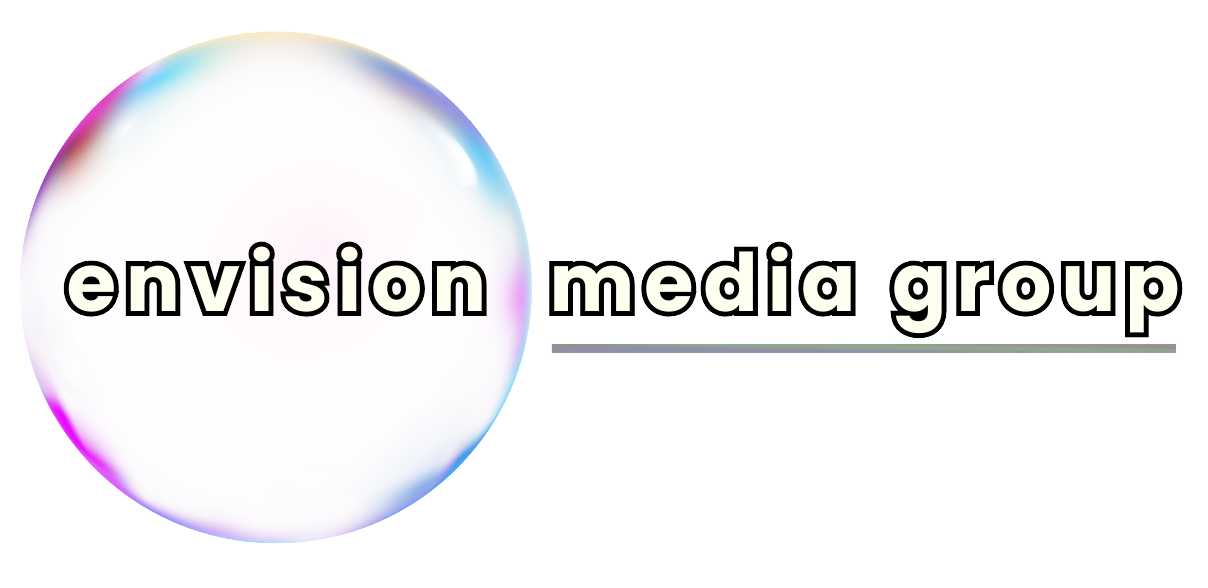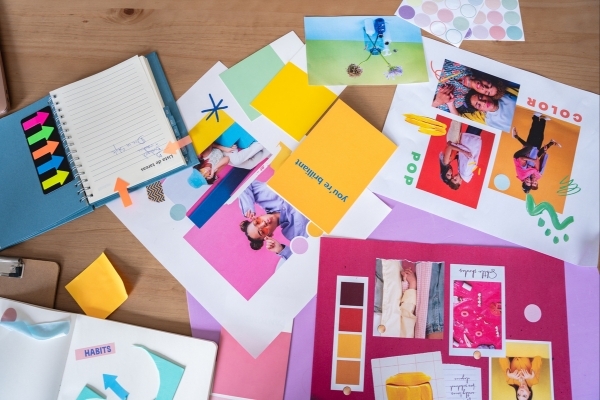Fonts and colors aren’t just aesthetic choices—they’re key parts of your brand’s identity. The moment someone lands on your website, your visual style begins to speak for you. It tells them who you are, what you value, and how professional you are—before they’ve even read a single word.
Strong visual branding builds trust, improves engagement, and sets your business apart. At Envision Media Group, our expert web design NJ team helps brands choose fonts and colors that reflect who they are and speak to their audience.
Table of Contents
ToggleWhy Fonts and Colors Matter for Your Brand
First Impressions Are Everything
Users form an opinion about your website in under a second. If your fonts are outdated or your colors are all over the place, they may bounce before they even scroll.
Brand Consistency Matters
Your website, business cards, social media, and marketing materials should all look like they belong to the same brand. Consistent fonts and colors help your business look more polished and professional.
Design Triggers Emotion
Colors and typography influence how people feel. Your visual identity should align with the emotion you want your audience to associate with your business—whether that’s trust, excitement, or calm.
How to Choose Brand Fonts That Fit Your Identity
Understand Your Brand Voice First
Before picking a font, ask yourself: is your brand playful or serious? Youthful or refined? A modern brand might go for a bold sans-serif. A high-end brand might lean toward a classic serif. The font should match your tone.
Font Types and What They Communicate
- Serif fonts (like Times New Roman): traditional, trustworthy
- Sans-serif fonts (like Helvetica): modern, clean, tech-forward
- Script fonts (like Pacifico): personal, elegant, creative
- Display fonts (like Impact): bold, attention-grabbing, best for headers
Readability Matters
Never sacrifice readability for style. Your fonts should be easy to read on all devices—especially mobile. Limit your website to 1–2 fonts max: one for headings, one for body text.
How to Pick Brand Colors That Represent You
Use Color Psychology
Different colors trigger different emotions. Here’s a quick cheat sheet:
- Red: bold, energetic, urgent
- Blue: trustworthy, calm, professional
- Green: natural, balanced, health-conscious
- Yellow: cheerful, optimistic, energetic
- Purple: creative, luxurious, unique
- Black: elegant, formal, powerful
- White: clean, minimalist, simple
Align Colors with Your Industry
Certain industries tend to stick to specific palettes:
- Tech: blue, gray, white
- Health/Wellness: green, white, beige
- Fashion: black, white, soft neutrals
- Finance: navy, gray, forest green
You don’t have to follow the crowd—but it helps to understand industry expectations before you intentionally break the mold.
Use a Primary and Secondary Palette
Choose 1–2 primary colors and 2–3 supporting colors. Use tools like Coolors or Adobe Color to build palettes that work together and stay consistent across your brand assets.
Common Mistakes to Avoid
- Too many fonts: Keep it to 1 or 2 to avoid clutter and confusion
- Clashing styles: Don’t mix fonts or colors that send different messages
- Choosing trendy colors: Your palette should reflect your brand, not a passing fad
- Ignoring accessibility: Make sure there’s enough contrast for users with visual impairments
Let a Professional Web Design Team Guide You
Choosing fonts and colors shouldn’t be a guessing game. At Envision Media Group, we guide every client through a visual branding process that blends creativity with strategy.
If you’re building a brand online, work with a professional web design team in New Jersey that understands how to make it all work together—from visuals to structure.
Final Thoughts: Design with Meaning
Fonts and colors may seem like small design choices, but they have a huge impact on how people perceive your business. The goal isn’t to pick what’s trendy—it’s to pick what’s true to your brand.


